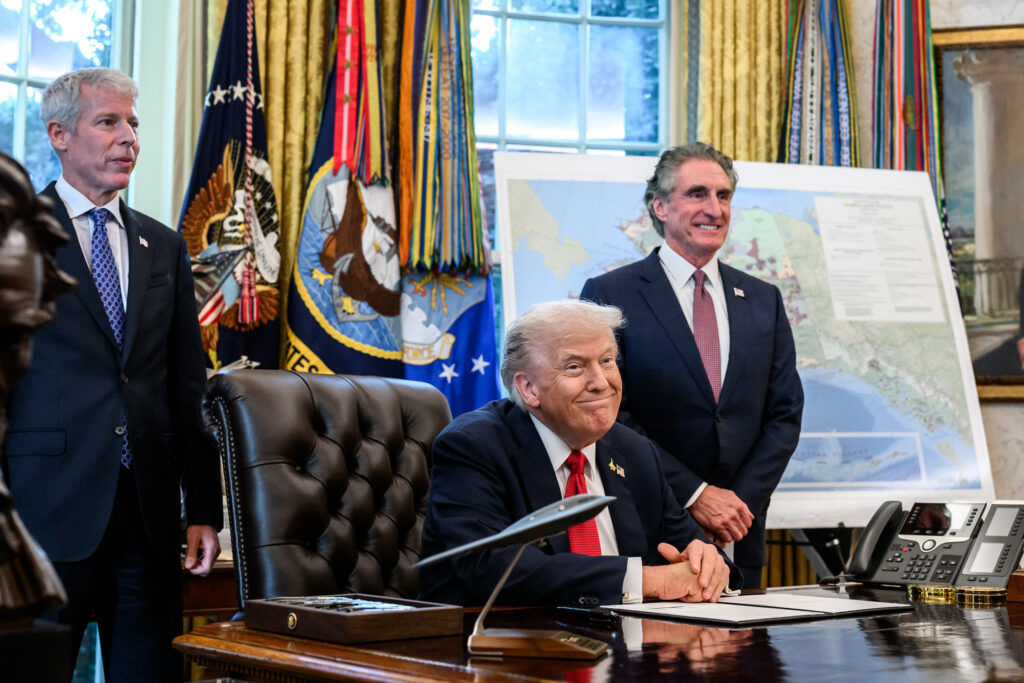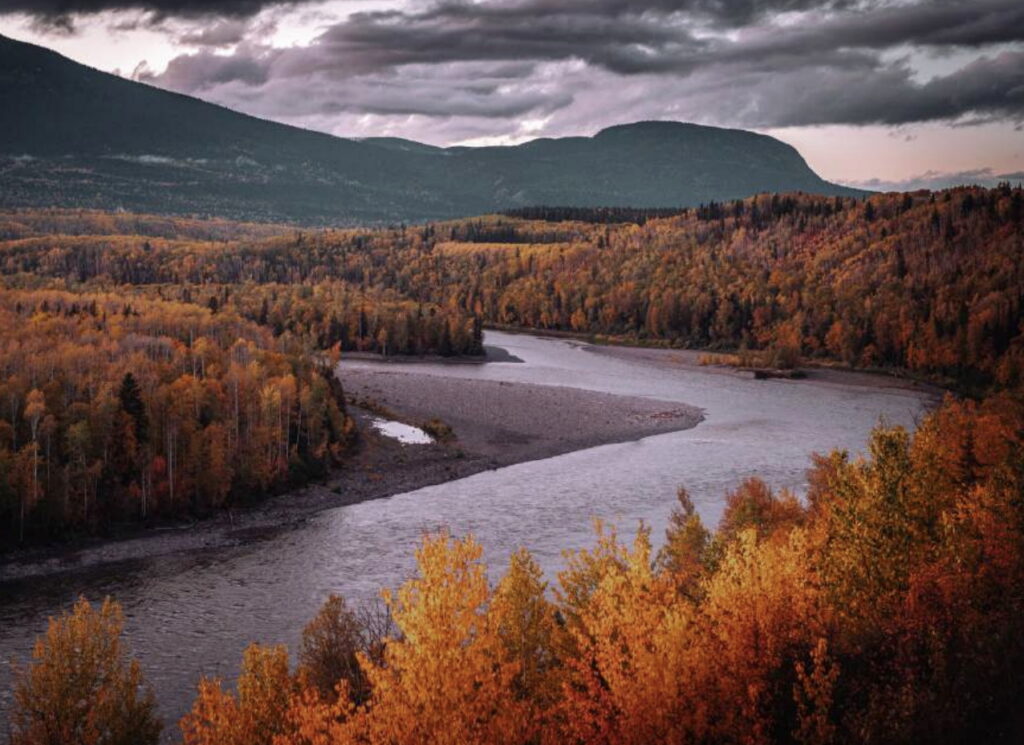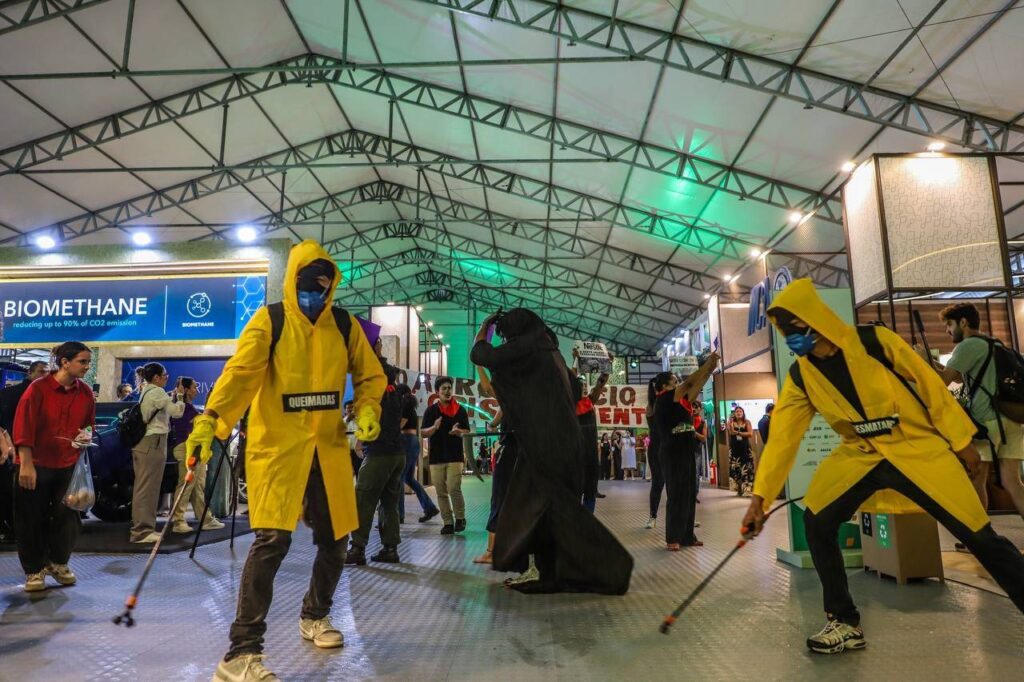Ten years ago, when DeSmog journalist Joe Fassler began writing a novel, he never imagined it would have anything to do with climate or the environment. But as time passed and his novel evolved, he found that themes from his work as an environmental journalist began to permeate the narrative.
The result is “The Sky Was Ours“ (Penguin Books, April 23), a modern retelling of the story of Daedalus and Icarus. The novel, set in 2005, follows 24-year-old Jane, whose rising concern for the world around her pushes her to run away. On the road, she falls in line with a charismatic radical named Barry, and becomes seduced by his single-minded pursuit of creating wings that humans can use to fly.
What follows is a story that reckons with the allure of technofixes and escape in the face of an unraveling world, and then turns away from them “towards a harder and more mature, but hopefully, ultimately, more meaningful form of engagement,” as Fassler described.
We sat down with Fassler to discuss his new novel, its intersections with environmental journalism, and the necessity of engaging with the climate crisis. The following conversation has been edited for length and clarity.
Lindsey J. Smith
You wrote “The Sky Was Ours” over a decade while also working full-time as a journalist covering environmental issues. Were those two approaches separate for you, or did you see links between them?
Joe Fassler
Fiction was what I went to grad school for, and at first I found my way into journalism mostly as a way to support myself while I wrote this novel. But while environmental journalism later became a career and passion in its own right, the novel itself, initially, didn’t have those themes. When I first started writing it 10 years ago, there wasn’t the same backdrop of low-grade, or sometimes high-grade, environmental stress that I think so many of us feel now and want so badly to find a way out of. But as I kept writing and kept reporting, climate change, environmental issues, chemical pollution, labor abuses in agriculture, all these things found their way into the book in a way that felt sort of unavoidable, event though this wasn’t something I’d planned or expected.
SMITH
And how did those issues you were reporting on shape the book’s themes?
FASSLER
This is a book about wanting something better. And I really found that this yearning of like, Can we can we save this planet? Can we stop behaving in these terrible extractive ways? Can we please just do the thing we all know we need to do, which is to change our approach to energy and food production? That longing really worked its way into the fabric of the book.
I also think, in a more practical way, the two different forms of writing helped to balance each other out. Fiction is extremely solitary. And journalism is so different from that. You have a team. You’re calling sources all the time. And you’re writing more directly about real world issues, you know. I feel grateful for the way that journalism has drawn me out into the world, and made me feel the urgency of our situation. It’s very, very easy to just go home every night and watch Netflix and not think about our reality, because it’s stressful. And I don’t blame people for wanting to do that. But this work forces me to face reality. You know, it’s our job to pay attention. And ultimately, I felt that that was a really fortunate influence on the process of this book.
SMITH
That’s interesting! It seems to me like this split in your career between this solitary act of writing fiction and the collective, connected act of journalism is echoed in the book’s exploration of the desire for escape versus the value of connection.
FASSLER
That’s a great insight — that tension between escape, or flight, and connection is a central theme of the book. And I’ve certainly wrestled with that in my own writing, wondering if fiction is an adequate response to the moment we’re in.
When you’re working on a novel for 10 years, it’s easy to ask yourself, Well, what am I really doing here? And journalism always scratched that itch of having the more immediate impact, of being tied into the world in that more direct way. Ultimately, though, I do hope that this book gets people talking about the situation that we’re in. I have so many conversations where people just express despair about the way things so often seem to be heading. “The Sky Was Ours” is very much trying to tap into that emotion, and get us talking about it, to think more actively about what we might do with that feeling. What is the proper response to this collective grief and anger that so many of us feel?
So much of climate-oriented fiction today is apocalyptic in nature, and I think there can be an escapist fantasy in that. The fictional doomsday scenarios are entertaining and scary, sure, but they’re also a way to dream about being free from all of this. And yet I do wonder if that narrative stance denies us the agency that we do in fact have in this moment. If fantasizing about the world ending so we can finally be free from the daily grind of capitalism helps us shirk the responsibility to work towards something different and better — now, today.
I actually built that anxiety into the structure in the novel. It’s told retrospectively, so the narrator is looking into the past, but the main action of the novel is in 2005. And I thought it’d be interesting to write a novel about the looming end of the world that was set not in the future, or in the near future, but in the past — when we still had time to do something about it. You know, we’re all going to look back later on this era as a moment of opportunity, as a moment when the window was closing. Given the way that climate impacts accumulate, we always have more power right now than we will later. And so rather than write a science fictional or speculative narrative about the end coming, I wanted to write one that invested the present with urgency.
SMITH
The main character, Jane, is worried about so many different things at the opening of the novel, almost doing the psychological equivalent of doomscrolling. Her solution to this sense that her world is headed badly off track is to run away — and in doing so she falls in line with Barry, this radical, idealistic, former Earth First! type who is building these beautiful wings that he believes will allow us to literally rise above, escape the status quo, and break down barriers. Jane is really enthralled by his vision, and as a reader I get it — there’s something both alluring and dark about Barry. Could you talk about the role he plays in the novel?
FASSLER
I mean him to be on the line between scary and maybe a bit mad, but also, you know, genuinely compelling. Jane really falls in love with his vision, though she in time comes to see some of the shortcomings of his vision, which is essentially just throw a new technology at problem. And we see this all the time. Whatever the new thing is — you know carbon capture and sequestration, or lab-grown meat, or regenerative agriculture, whatever it is — these silver-bullet fixes. What all these solutions have in common, in addition to being untested and insufficient, is they kind of get us off the hook. They put the burden of doing the work on somebody else. And I’m not sure that that’s the way forward. I think if we want to transform society, we need society to buy in. And that means people — that means you and me.
It is incredibly tempting not to engage. In the novel, Barry’s wings are a perfect vehicle for exploring that emotion that I think so many of us feel, of just wanting to get away from it all. The world can be very ugly, the world can be full of very horrifying things, and in some ways, we have more access to that than ever before. And the instinct I think can be very, very strong to hide from that. Understandably, so; we can’t absorb all the horrible corners of the world. But on the other hand, I think our imperative is to face them, and try to meaningfully fight for a world that that we can live with. The gesture of the book is to really look at that escape, look at that desire for it, experience it, and then turn away from it towards a harder and more mature, but hopefully, ultimately, more meaningful form of engagement.
SMITH
And so how do we do that? How do we push past fatigue and anxiety and the desire for escape and dig into the harder and more meaningful work of engaging with the climate crisis?
FASSLER
I think part of the reason anxiety is such a common response to this is because we already know what we need to do: We need to wean ourselves off of burning fossil fuels as quickly as we can. But how do we get there with all of the moneyed interests and multinational corporations and entrenched political groups that want to work against that outcome? You know, it feels so overwhelming. I think the problem we do have now is convincing people that their buy-in matters. What that entails is trying to find ways for us to own this problem in a way that’s related to our daily lives, to our communities, to our families, to the things that we do. You know, less looking at videos of polar bears and icebergs on YouTube, and more seeking out the frontlines of climate change in our own communities. Getting our hands dirty. Insisting that we care, and that we’re ready to do something about it.
Subscribe to our newsletter
Stay up to date with DeSmog news and alerts






